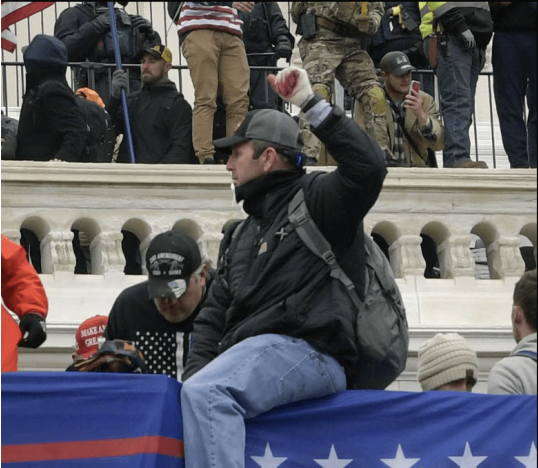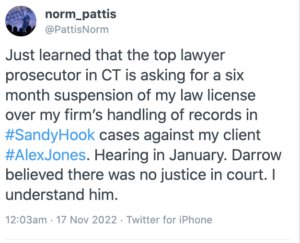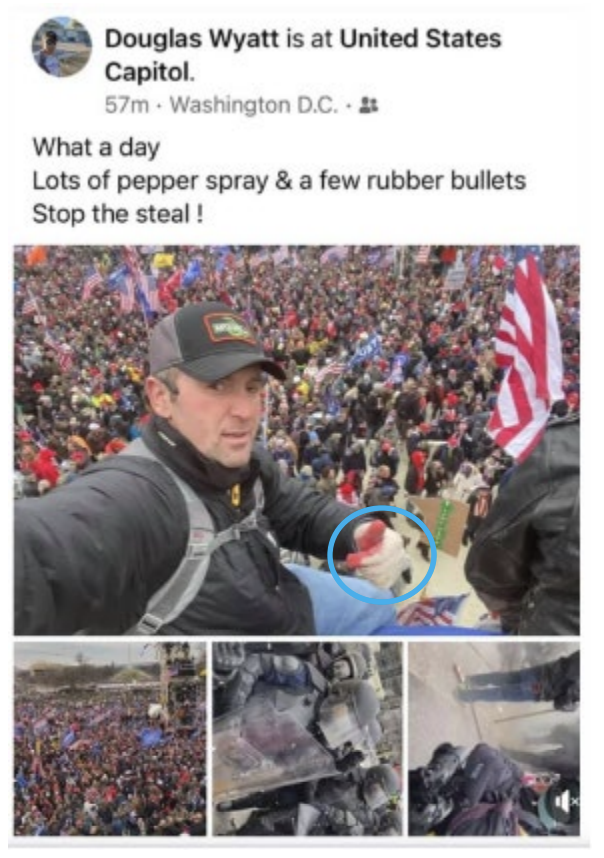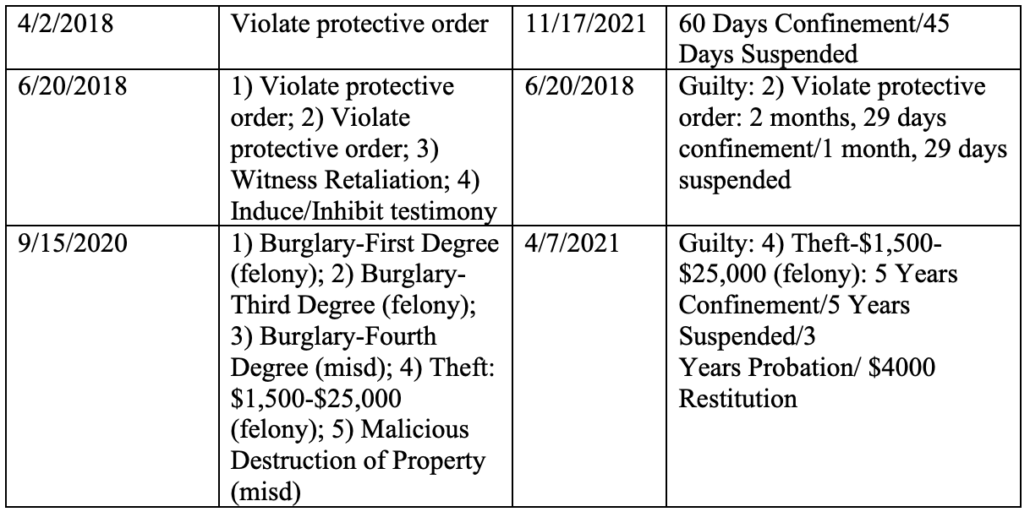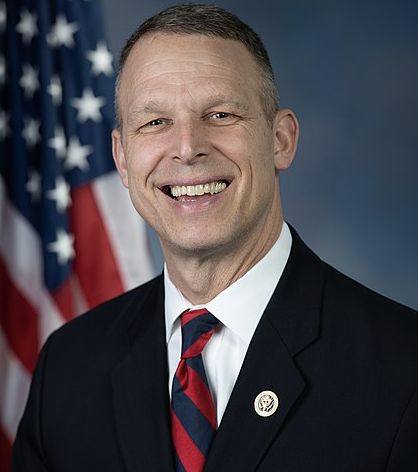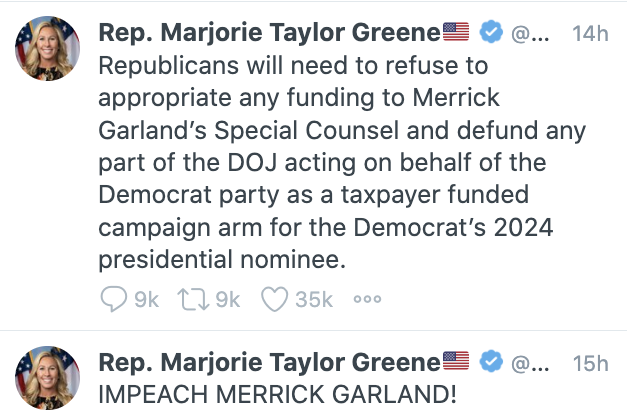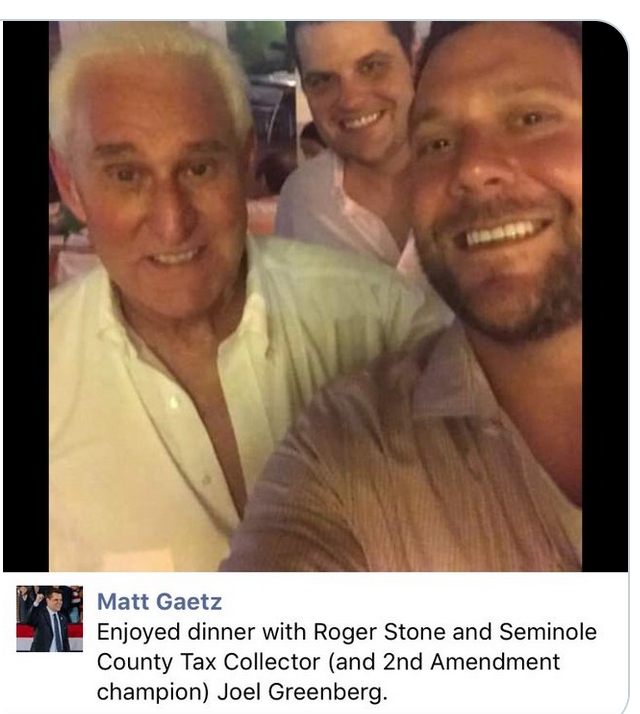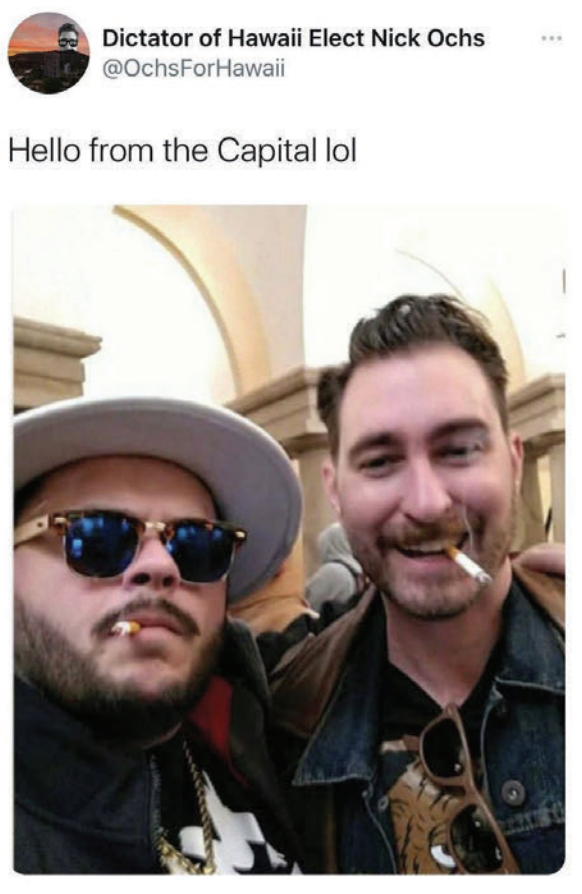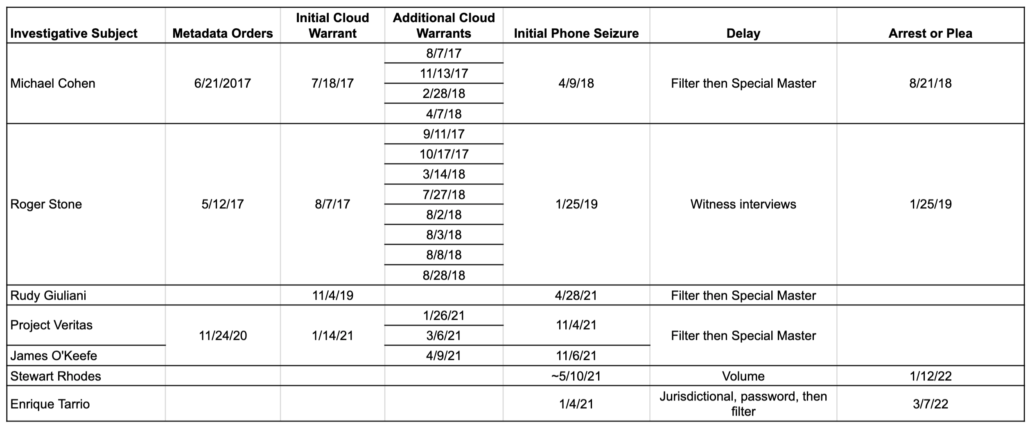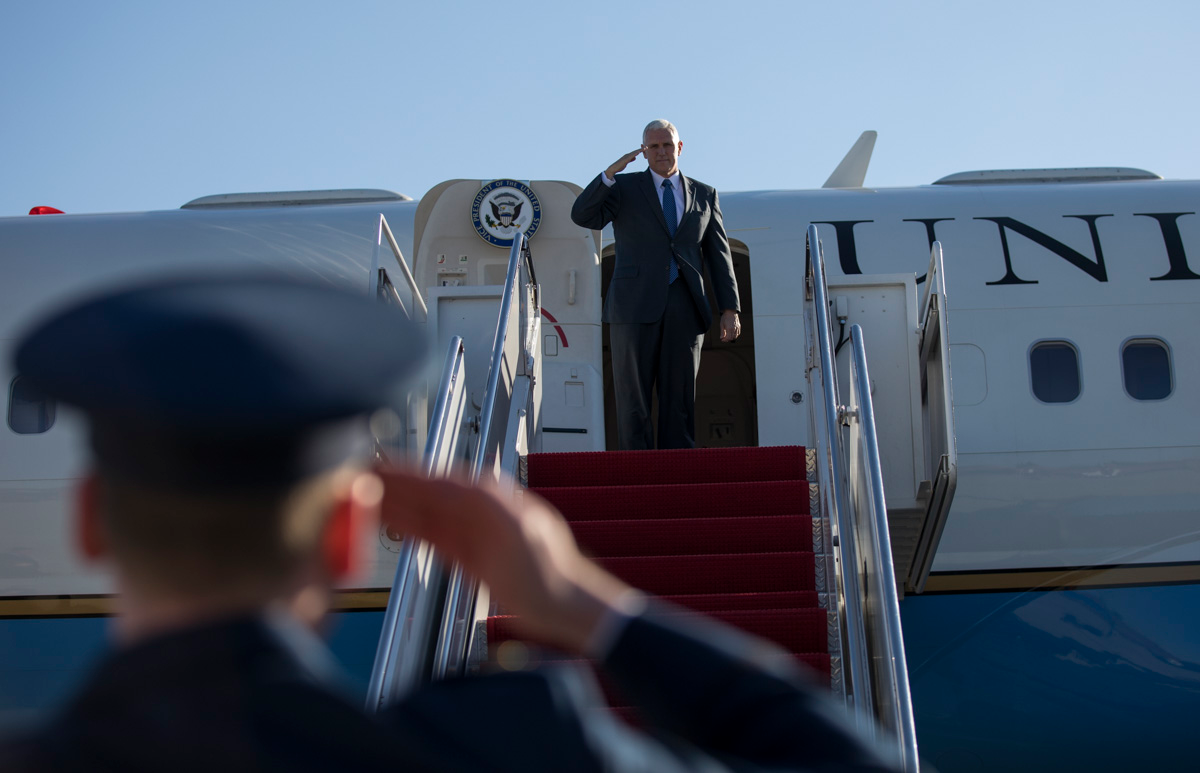The Curiosity of Norm Pattis’ Third January 6 Client’s Delayed Arrest
On Wednesday (the time on the screen cap is Irish time), Norm Pattis — the Connecticut lawyer who fucked up and sent texts from his client Alex Jones, along with highly personal discovery from the CT Sandy Hook plaintiffs, to the TX Sandy Hook plaintiffs — tweeted that a head lawyer in CT wants him to serve a six month suspension for that ethical violation.
On Thursday, for a second straight time, the pre-trial hearing in the Proud Boy Leader case, in which Pattis represents Joe Biggs, was sealed to the public. One thing that has been a pressing discussion in that case that might merit sealing is the potential conflict of Biggs’ other lawyer, Daniel Hull, because he briefly represented co-defendant Enrique Tarrio in one of the civil suits against the Proud Boys.
If both Biggs’ lawyers had conflict problems, it might seriously roil the schedule of the trial, which is currently due to start next month. When Jonathan Moseley’s license was suspended, for example, the prosecution of his then-client, Oath Keeper Kelly Meggs, was halted until Meggs found a new attorney.
Meanwhile, Pattis’ other January 6 client, Jones sidekick Owen Shroyer, is supposed to decide by the end of the month whether he’ll take a plea or take his chances with getting superseded with others.
All of which makes it weird that Pattis took on a third January 6 defendant last week. Or perhaps we only learned that Pattis has long been representing one: The defendant is a guy named Douglas Wyatt, who was arrested for assault, civil disorder, and trespassing on the same day as his stepson, Jacob Therres.
It turns out Wyatt has been lawyered up and waiting for arrest since shortly after the attack. As his arrest affidavit describes, there were tips streaming in to the FBI about him starting the day after the attack, with a tip received on January 7, two tips on January 8, and two more tips on January 12, based in part on his social media postings.
The FBI interviewed him at his home in a suburb of Baltimore on January 29, 2021; while he admitted he was at the attack, he managed to get rid of the FBI before he said much more.
By April 2021, Wyatt was represented by some lawyer — Attorney-1 — who basically did DOJ the favor of calling a prosecutor to confirm that his client was the guy identified in one of the FBI’s wanted posters, BOLO 277.
On January 29, 2021, the FBI interviewed WYATT at his residence in Fallston, MD. WYATT admitted he had been present on January 6, 2021 at the U.S. Capitol, which he referred to as “the People’s House,” and felt he had the right to protest. However, WYATT claimed he did not have time to talk but took a business card and agreed to call the FBI in the future. WYATT later retained counsel (“Attorney-1”) and was not interviewed further. On or about April 6, 2021, Attorney-1 sent an email to an Assistant United States Attorney for the District of Columbia. The email stated in relevant part (with emphasis added):
“Mr. Wyatt did not go into the Capital building on January 6, did not assault a law enforcement officer, nor anyone else that day, and was not engaged in the destruction of any property. . . He had no intention nor desire to, nor caused any trouble and is not a member of any group which was involved in causing trouble on January 6. I am sending you this email because I noticed yesterday that my client’s picture is one of the several hundred pictures on the FBI website. That came as a surprise because the FBI has known who he is since early February.” [emphasis original]
The posting of pictures of Wyatt on FBI’s BOLO site, on March 26, 2021, could not have been a surprise, to Attorney-1 or to Wyatt. By February 2021, shortly after the interview, Wyatt had started searching the FBI’s site full of January 6 BOLO posters.
WYATT conducted several searches on Facebook in February 2021 regarding “fbi most wanted capitol riots.”
Wyatt may have been searching FBI’s most wanted Capitol Riot site in February because, on February 2, 2021, FBI had posted pictures of Wyatt’s stepson, Therres, BOLO 180. Therres is alleged to have thrown a plank that hit a cop in the head and did real injury.
So Wyatt was monitoring whether the FBI was onto him in February 2021. Yet it wasn’t until November 14, 2022 when these two men were arrested.
You’ve got to wonder why the government took 21 months to arrest these guys, living an hour away in Maryland, after almost immediately confirming Wyatt’s ID. Especially given Therres’ recent arrest record (Therres’ own detention response says this may not be entirely accurate).
In this case, at least as described by the timeline laid out in the arrest affidavit (which I’ve laid out below), FBI got immediate notice of Wyatt’s participation. But they may not have looked too closely — they may have believed Attorney-1’s denials — until they first started confirming Therres’ identity, with his familial tie to Wyatt, starting in August 2021.
That still doesn’t explain the delay since April, when the FBI had solid IDs on both father and stepson.
Which brings me to a few of the reasons I started looking at this arrest more closely.
His arrest affidavit describes how Wyatt successfully wrestled the Gadsden flag of another rioter away from a cop.
WYATT also helped pull away a protestor’s flag, shouting “get the fuck off that” as an officer attempted to grab the flag away from the protestor:
It also describes how, after the cops on the West Terrace are first overwhelmed he filmed that. That’s interesting because for an hour of the insurrection, he parked himself on an enormous Trump flag (see the significance here) and at times appears to make hand signals.
It’s almost like he was providing others feedback, though Therres’ detention memo says, “there is currently a lack of evidence concerning coordination with others before January 6,” at least regarding Therres. If FBI delayed the arrest to try to see if Wyatt had coordinated with others — besides handing Therres the plank he threw — they may yet to have found evidence before searches done with their arrest.
Which brings me back to Norm Pattis.
When the Sedition Hunters first started focusing on Wyatt’s activities months and months ago, they gave him a hashtag like they do everyone else.
They named him #InfoSprayer, based on his use of spray against cops, and his hat: An InfoWars hat. (Therres was dubbed #NelsonPostThrower.)
I’ve emailed Pattis to see if he would say whether he was the Lawyer-1 described in the affidavit; I have yet to get a response. If he was, though, it would mean around the time Wyatt was given an InfoWars moniker, Wyatt was lawyering up with Alex Jones’ lawyer, a Maryland guy counterintuitively hiring a Connecticut lawyer for legal troubles in DC.
It’s weird enough that Norm Pattis filed as Wyatt’s lawyer last week.
It would be more interesting still if Wyatt hired Pattis back when the FBI first started investigating him.
Update: Hmmm. DOJ charged Therres by himself. Wyatt has, separately waived the preliminary hearing.
Timeline
January 7, 2021: First tip on Wyatt submitted: “Check out his Facebook, too. He has posted videos as well.”
January 7: Wyatt comments on Facebook that “I was there.”
January 8: Wyatt comments on Facebook that Ashli Babbit “was in the wrong for breaking the window” … “I did not enter the capital or engage the police.”
January 8: Second tip on Wyatt: “Pictures of Douglas Wyatt at/in the Capitol on the day in question.”
January 8: Third tip on Wyatt: “I’m simply reporting a former FB friend for his part in the terrorist acts in Washington D.C. on January 6th.”
January 12: Fourth tip on Wyatt: “Saw Suspicious FB comment and checked his page. These were associated with a ‘profile’ attached. Douglas Wyatt lives in Fallston, MD…”
January 12: Fifth tip on Wyatt: “Made suspicious comments on FB post which led me to snoop his profile. Found this and wanted to share. FB pick is from previous ‘protest’ but comments he will be there on Wednesday.”
January 29: FBI interview of Wyatt.
February 2: Therres’ picture posted as BOLO 180.
February: Wyatt searches for “fbi most wanted capitol riots.”
March 26: Wyatt’s photo posted as BOLO 277.
April 6: Attorney contacts DOJ about Wyatt.
August 5: First tip on Therres.
September 20: FBI matches Therres BOLO to Maryland ID.
Late October: FBI searches for now-deleted Facebook content of Wyatt.
October 29: FBI accesses Facebook account for Wyatt’s spouse, matches gloves used at attack.
November 5: Therres’ probation officers confirm BOLO ID.
November 23: FBI reviews video of Therres throwing plank.
November 29: FBI reviews video of Therres’ alleged assaults (this may have been the first that FBI realized Wyatt’s interactions with Therres at the attack, including that he handed Therres the plank with which Therres allegedly injured an officer; thus far Wyatt is not charged with abetting the assault causing injury charged against his stepson.
December 14: Second tip on Therres, reporting he tasered 4 police officers.
April 5, 2022: Close contact of Therres IDs his BOLO, relays that Therres was “very vocal” in social circle about “inflicting violence on police officers, with potentially a taser.”
April 6: FBI access previously obtained Wyatt’s Meta content showing contemporaneous posts about his participation.
April 19: FBI agent who interviewed Wyatt confirms ID.

